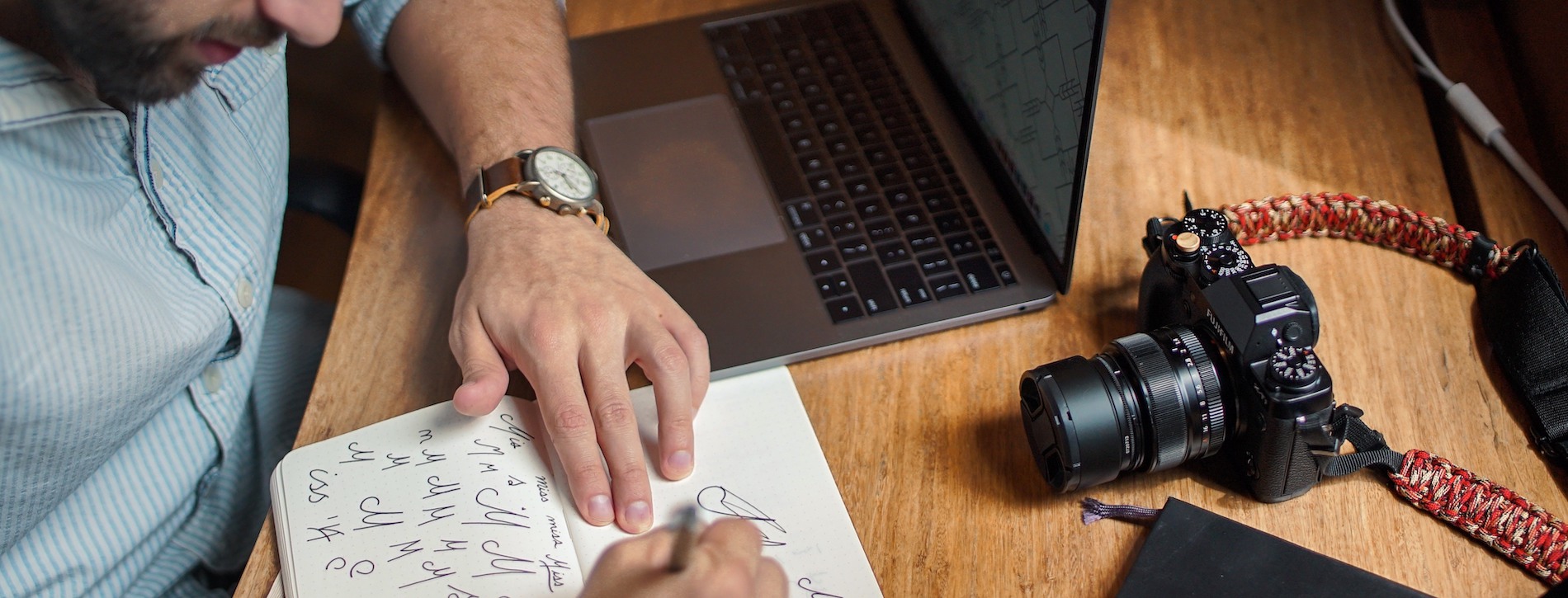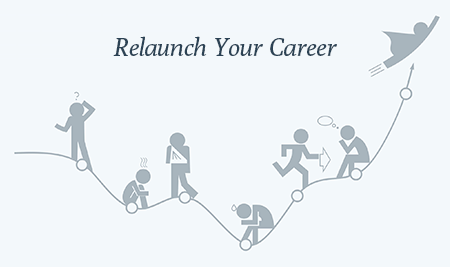Back in 2013, I was facing a moment of truth in my career, deciding whether to leave my full-time job to fully devote myself to my side-business. During the preceding year, I’d begun doing career consulting and speaking on the side, and found the work I was doing for clients and audiences to be more meaningful and fulfilling than my full-time day job.
At the time, I was working in London as a global brand marketer for a well-known, consumer brand at a large corporation. I enjoyed aspects of my work, and even felt my long-term prospects as a marketer could provide me with a reasonably satisfying future.
Still, I found myself feeling less excited about my day job than my side hustle.
This question of when and whether to turn your side gig into something more is a common, daunting question, especially if you find yourself enjoying your side project, venture, freelance work, or independent consulting gig more than your day job but wonder if you can stomach the idea of shifting all your eggs into a side gig still in its infancy.
I really struggled with three things when it came to deciding whether or not to turn leave my corporate job behind to focus on my side business. First, whether I could turn my side gig into a viable business that generated a comfortable income. Second, whether I was “ready” to walk away from the stability my full-time corporate job. Finally, when exactly the righttime would be to make the leap.
Here are seven clarifying questions I asked myself that helped me come to my decision to turn my side gig into a full-time business, which you could consider asking yourself if you’re wrestling with whether to leave your day job to devote more of your time to your side project.
1. Is My Family Situation Reasonably Stable?
Back in 2013, I’d just gotten married to my wife, we didn’t have kids yet, and everything was also quite stable and manageable with the rest of my family commitments, so it felt like introducing a bit of potential volatility into our lives was something we could weather.
When you’re in the early days of turning your side gig into your full-time job, you can expect some turbulence, so consider making your move when you and your family are in a position to absorb some of the inevitable bumps along the way.
2. Can I See A Path To Profitability?
I had to be able to make a living doing this work and have enough work coming my way to pay the bills and have the lifestyle I desired. I sat down and mapped out a few, realistic paths to my work being financially sustainable. I also tested the waters of my fees with potential clients, so felt like I had a reasonably good shot at generating enough income from my career consulting business if things went roughly according to plan.
The burden of being your primary source of income will land squarely on your side gig in a way it didn’t before, so you need to have a realistic plan in place to get you where you need to be financially.
3. Do I Have A Backup Plan If Things DON’T Work Out?
I felt like I’d built up a solid track record in the corporate world as a brand marketer on some well-known brands, and some solid relationships with recruiters, so felt well positioned to return to the marketing industry if things didn’t go my way. After leaving my full-time marketing job behind, I remained involved as a speaker for marketing events, invested time maintaining my marketing network, and sent regular, quarterly updates to a few trusted recruiters in case I needed to re-enter the industry later.
Having a Plan B in place not only gives you the comfort of knowing things will be okay if your side gig doesn’t work out the way you want it to but also forces you to take interim steps to ensure you’re keeping that backup plan alive.
4. Is The Opportunity Cost Becoming Too Great?
Over time, I started noticing myself saying “no” more than “yes” to side opportunities due to my capacity and other conflicts with my day job. I found myself having to turn away clients and some potential workshop opportunities because of my work commitments, lack of extra time, and frankly, just my lack of energy. . . which wasn’t a great feeling.
The cost of staying can eventually exceed the cost of leaving, and when that happens, you owe it to yourself to free up your days so you can have the capacity to give your side gig the attention it deserves, ultimately maximizing your chances of turning it into your primary job.
5. Do I Have A Solid Financial Cushion?
Before making my leap, I wanted to ensure I didn’t go under if it took longer than I expect to get things off the ground with my business. My wife and I sat down and did the math, and defined how long we could go if I didn’t earn ANY income for a while, how much we were willing to eat into our savings, before I resorted to that Plan B I mentioned before.
The first year of starting any new venture will inevitably be fraught with volatility, periods of no income, and upfront investment. The last thing you want is to come across as desperate, especially when trying to sell your idea into investors or clients.
6. Will I Regret NOT Doing This Right Now?
The biggest regrets I’ve had in life have resulted from me playing it safe rather than taking a measured risk. Before starting my own business, I had gotten to a point where the idea of continuing to indefinitely postpone launching my own business began to haunt me. Before launching my podcast, I realized I’d really be kicking myself if someone else out there created a podcast focused on career change instead of me.
Regret is a tough emotion to stomach, so you have to decide which regrets you cannot live with, then act accordingly.
7. Is It Time To Enjoy My Work Rather Than Just Tolerate It?
Spending the majority waking hours doing work I didn’t find deeply meaningful became harder and harder to stomach over time, especially because I found the side work I did on the evenings and weekends so much more fulfilling than my day job. At some point, I realized I was simply tolerating my work, the same way I might tolerate a cold or muscle ache, and decided I no longer wanted to live like that.
If you find yourself enjoying your side gig more than your day job, you have to decide how long you’re willing to tolerate doing work that doesn’t truly engage you.
Aim For A Reasonable Rather Than “Perfect” Time To Take Your Leap
In spite of the many signs pointing me toward turning my site hustle into my full-time job, I could still find plenty of arguments AGAINST the idea of leaving at that specific moment in my career and life. For example, I was about to apply for my UK citizenship, which made the timing of going self-employed suboptimal because of certain income requirements. We were also still renting at the time, which argued for maintaining a steady corporate salary to build and protect our savings for a down payment. Corporate carrots were also dangling in the distance at the time, including exciting, global projects and prospects for promotion.
The decision to trade in your steady job for something uncertain is challenging because there will always be a strong argument for staying. If you’re struggling with whether or not to turn your side gig into your full-time work, or some other leap you’re considering, keep in mind some trade-offs will always be involved, no matter when you decide to make your move.
For me, I knew some trade-offs would be involved, but I felt like the situation was optimal ENOUGH for me to make the leap. Later that year, I resigned from my brand role at Häagen-Dazs, and focused my energies on my career consulting business, which is what I’m still doing today.
What I’ve realized from working with many clients who have made some sort of a leap, is that finding a perfect time to make a drastic career change is pretty tough, so finding a goodenough time is often the best you can do.
The great news is that the choice rests solely with you. You get to decide if and when to make your brave leap. If you do decide to go for it, I believe you’ll find the journey well worth it.



